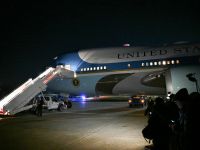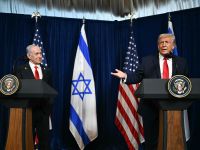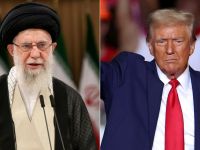His Majesty King Abdullah and German Chancellor Angela Merkel on Wednesday held talks which focused on developing Jordanian-German cooperation in various fields, besides reviewing regional developments.
King Abdullah expressed his satisfaction with the level of Jordanian-German relations, commending Germany's support for the Kingdom, as it “boosts its capabilities in dealing with economic challenges and carrying out development programmes”, a Royal Court statement said.
Talks addressed current regional conditions and challenges facing the Middle East, especially in relation to international efforts exerted to confront the danger of terrorism, as well as efforts to achieve regional stability.
In this context, the King noted that international key parties and powers should adopt a holistic strategy to confront all forms of terrorism and radicalism.
Regarding regional peace efforts, the King reasserted that international key powers and parties should intensify their efforts to bring about conditions that would be conducive for the revival of the peace process between the Palestinians and the Israelis.
They should remove obstacles that preclude the resumption of peace negotiations, on the basis of the two-state solution and international resolutions, the King said.
Talks addressed challenges that several Arab countries are facing, including Syria, Iraq, Libya and Yemen, with both sides stressing the need to arrive at inclusive political solutions that safeguard these countries’ stability, sovereignty and the security of their people.
Merkel stressed her country's commitment to strengthening its friendship with the Kingdom, adding that she was looking forward to expanding prospects of joint cooperation between the two countries in various fields.
She said Germany considers the Kingdom a strategic partner in dealing with the current challenges, and enhancing stability and security in the Middle East and the world as a whole.
She expressed her appreciation of the key role played by Jordan, led by King Abdullah, along with various international parties, in dealing with the danger of terrorism and confronting terrorist groups, being a common global threat.
At a joint press conference following the talks, His Majesty underlined his keenness to strengthen ties between Jordan and Germany and continue consultation on issues of mutual concern.
In his remarks, King Abdullah said: “As always, madam chancellor, it is a great honour to meet with you and a pleasure to be back here in Germany.
On behalf of all of us, myself and all Jordanians, I would like to thank you, the German government and the German people for the constant support that you have shown Jordan all over the years.”
The King added that the investment Germany has made in Jordan “is bearing fruit for both our countries on a wide range of economic, cultural and educational fields. I, personally, and our country, value this opportunity to build on our strong and valuable strategic partnership”.
Particularly at this critical time, he said, “Jordan places great importance on working with our partners within the EU on the many challenges our region faces; and beyond that on advancing peace, security and stability in our region and worldwide.”
Outlining the outcome of his meeting with Merkel, King Abdullah said: “In today’s meeting, as the chancellor said, we reviewed many areas of concern in our region. Obviously, Germany plays a very vital role, not only in this part of the world, but also in our region, and I think we have covered a lot of ground, where specifically, the global threat of terrorism is something that brings Germany and Jordan closer together, and how the coordination between Jordan and Germany unites us in containing and countering extremism and terrorist groups plaguing the world.”
On the threat of terror, His Majesty said that never has such a threat been as widespread as it is today.
“It is not just about Daesh, ISIS, in the Middle East, but also Boko Haram and Al Shabab in Africa. These dangers cannot be approached in isolation, and we have talked about how we create a holistic approach in dealing with those issues in the Middle East, Africa, Asia and beyond.”
“We also, as the chancellor said, talked about the challenges of the Palestinian-Israeli conflict; and, again, this is the most persistent problem in our region, and a major contributor to extremism and recruitment of extremists throughout the world. I think both of us see that the only way out is to push both parties together in pursuing the two-state solution.”








